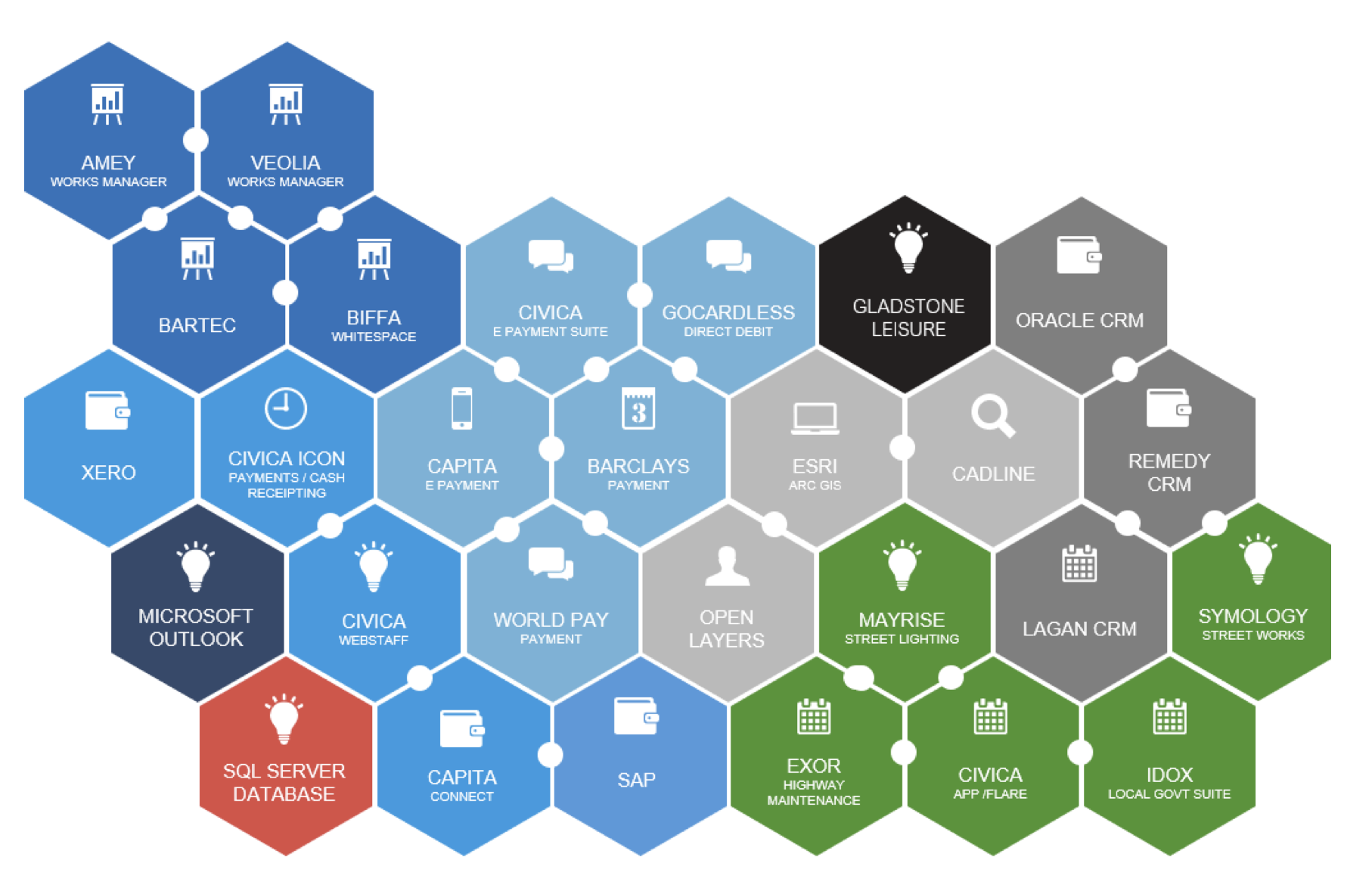How Integration and Web Services will help you
The My Council Platform has been designed from the outset to enable easy integration with third party applications to facilitate the timely and secure two way exchange of information.
Abavus can enable the council to complete its own integrations using the available web services if preferred, or for complex integrations the Abavus Technical Project Team can provide a fully serviced integration project.
We have completed many integrations for our clients to a wide range of third party systems and databases that are commonly used by UK local authorities. Some recent examples are listed below.

The primary preferred means of system to system integration is to utilise web services.
The fully documented web services allow customers to integrate their own systems with our platform. The web services expose core functionality in an easy to consume format and in such a way that no platform knowledge is required. We provide a single, industry best practice, SOA (Service Oriented Architecture)-based integration platform with web services delivered through the open source frameworks and written to common web standards.
The web services are secure, reliable, scalable and allow for two way data exchange communication between systems. The My Council Services Web Services suite will create and maintain an audit trail of the web service executions.
The complete suite of web services provides methods for all the key functional elements of the My Council Services platform including the following:
- Service Request and Case Methods – will operate against and return all the service requests and cases created or updated since the last execution of the web, applies sophisticated filter criteria and can accommodate all other relevant and required parameters.
- Community Methods – will operate against data within an address, matched to a person and/or organisations
- Task Methods – will operate against and return all the ad hoc or scheduled tasks created or updated since the last execution of the web, applies sophisticated filter criteria as required and can accommodate all other relevant and required parameters.
- Waste Methods – web services designed to support waste management functions and other property based service delivery processes. Returns a list of addresses (name and UPRN) for a given postcode and can accommodate all other relevant and required parameters.
- Booking Methods – web services designed to support booking and appointment functions and processes. Enables the retrieval of all available facilities and their slots, book them and make any further changes if necessary. Once the facility and the slot required are created these values are passed into the booking method to confirm booking. The same method can be used to make and update a booking. Booking Method can accommodate all other relevant and required booking and appointment parameters.
- Quoting Methods – web services designed to support financial transactions and pricing functions used across the platform
- Product Methods – web services designed to support product centric transactions and purchase functions used across the platform
- Contract Methods – web services designed to support contracts, licenses and permit processes. Enables the retrieval of the available contracts by reference and their items, create contracts, manage contracts and cancel contracts.
